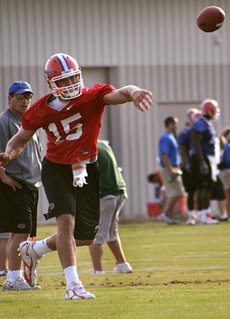Past Pathetic
The University of Miami football program is well on its way if it's not already to being the laughingstock of college footballs and not just for the felonious behavior of the players, but also for the mediocrity of the product put on the field. For a program of Miami's stature, with all of the built-in advantages a major college football program has, to struggle so mightily against what should be greatly inferior competition is inexcusable and that was never more on display than during that squeaker of a victory over Duke by only five points.
This Duke team Miami almost lost to and only scored 20 points against is the same team that was allowing an average of 30.2 points per game overall and 34.5 points in ACC play. Although Duke has been stingier with the run than I thought with their opponents only averaging 111.3 rushing yards per game, the fact Miami still only managed 37 net rushing yards is reason enough to fire every single football coach currently on the payroll.
As for Javarris James, he started the game, but it was Tyrone Moss who finished the game with the most carries. According to the box score, James was only given 5 carries for 11 for 2.2 yards per carry. However, by the play-by-play data, James had eight carries, with five of them being success runs with an extra 2.2 yards per run and the other three being failed runs by 5.5 yards per. No matter how you slice it, James had a sub-par game so he fit in perfectly with the rest of his teammates. Actually, this is what par looks like for Miami now.
This Duke team Miami almost lost to and only scored 20 points against is the same team that was allowing an average of 30.2 points per game overall and 34.5 points in ACC play. Although Duke has been stingier with the run than I thought with their opponents only averaging 111.3 rushing yards per game, the fact Miami still only managed 37 net rushing yards is reason enough to fire every single football coach currently on the payroll.
As for Javarris James, he started the game, but it was Tyrone Moss who finished the game with the most carries. According to the box score, James was only given 5 carries for 11 for 2.2 yards per carry. However, by the play-by-play data, James had eight carries, with five of them being success runs with an extra 2.2 yards per run and the other three being failed runs by 5.5 yards per. No matter how you slice it, James had a sub-par game so he fit in perfectly with the rest of his teammates. Actually, this is what par looks like for Miami now.


